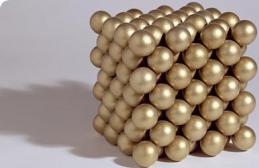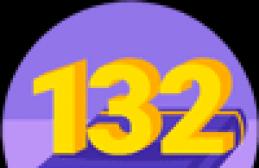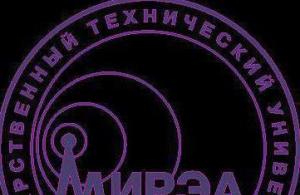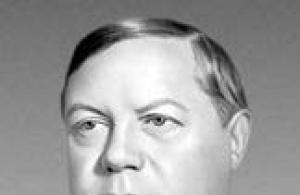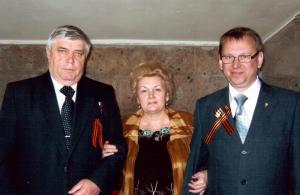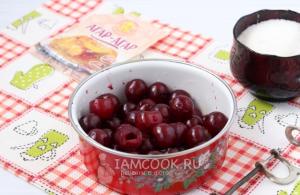1. Найдите и исправьте ошибки в видо-временной форме глаголов.
- My wife and I are happy together: we are married since 1985.
- We usually have had our lunch before 2 p.m.
- I never do eat Japanese food.
- Sam often going to the movies.
- She is the laziest person I ever meet.
- They will go to the zoo last weekend.
- You are knitting this sweater for a month already!
- Did she brought the money yesterday?
- Nick studied at the library next Friday.
- Does Jane has a car?
- Ricky didn’t cooked anything for you.
- Mary is wearing jeans every day.
- I had eaten roast turkey many times.
- The boy broke the window before we came here.
- Your dog barked the whole evening yesterday.
- She was talking on the phone while I ate sushi.
- Fred has many jobs during his life.
- She will watch her favourite soap-opera at 10 o’clock tonight.
- Our plane leave in 2 hours.
- He don’t read the instructions yet.
- The situation will change by Thursday.
- How long are you learning to rollerblade?
- I have planted twenty rose bushes last Sunday.
- When we woke up in the morning the rain has already stopped.
- Renata is wearing contact lenses for about 10 years already.
2. Найдите в тексте ошибки в форме глаголов и поставьте правильную.
I am afraid my daughter became a chocoholic. There was a time when she eat just a bar of chocolate a day. But now she is wanting only chocolate. Chocolate sweets, chocolate ice-cream or milk, chocolate muffins: these is her favourite foods. She constantly eat sweets. I already notice some changes in her figure.
When I came home last night she is eating chocolate doughnuts. In fact she ate five of them before I came. And that was the first time she ate so much. For that reason I decided to phone my friend Henry. He works as a doctor for 10 years and I often asking him to give a good advice. I am thinking he is the best doctor I ever met. So Henry asked us to came to his office. So at this time tomorrow we’ll visit him and discuss this problem.
I’m sure that by next spring my daughter will give up her bad habit, and in a couple of months’ time she will eat healthy food only. But, please, not tell it to anyone. You are the only person who is knowing it.
3. Поставьте глагол to study в необходимую форму для каждого случая, не переводя всего предложения.
to study
- Он изучает древнюю историю в колледже.
- Он изучает историю России в данный момент.
- Он учил историю вчера.
- Вчера с 6 до 9 вечера он учил историю.
- Он изучает историю уже два года.
- Он только что выучил тему по истории.
- Завтра он выучит пять тем.
- Когда я позвонила ему, он уже выучил две темы.
- Когда я позвонила ему, он учил историю уже полтора часа.
- Завтра к 6 часам я выучу все темы.
- Завтра в 6 часов он будет учить историю Греции.
- К тому времени, как придет отец, я уже несколько часов буду учить историю.
Ответы:
- My wife and I are happy together: we have been married since 1985.
- We usually have our lunch before 2 p.m.
- I never eat Japanese food.
- Sam often goes to the movies.
- She is the laziest person I have ever met .
- They went to the zoo last weekend.
- You have been knitting this sweater for a month already!
- Did she bring the money yesterday?
- Nick will study at the library next Friday.
- Does Jane have a car?
- Ricky didn’t cook anything for you.
- Mary wears jeans every day.
- I have eaten roast turkey many times.
- The boy had broken the window before we came here.
- Your dog was barking the whole evening yesterday.
- She was talking on the phone while I was eating sushi.
- Fred has had many jobs during his life.
- She will be watching her favourite soap-opera at 10 o’clock tonight.
- Our plane is leaving in 2 hours.
- He hasn’t read the instructions yet.
- The situation will have changed by Thursday.
- How long have you been learning to rollerblade?
- I planted twenty rose bushes last Sunday.
- When we woke up in the morning the rain had already stopped .
- Renata has been wearing contact lenses for about 10 years already.
I am afraid my daughter has become a chocoholic. There was a time when she ate just a bar of chocolate a day. But now she wants only chocolate. Chocolate sweets, chocolate ice-cream or milk, chocolate muffins: these are her favourite foods. She is constantly eating sweets. I have already noticed some changes in her figure. (Боюсь, что моя дочь стала шоколадоголиком. Было время, когда она съедала лишь плитку шоколада в день. Но сейчас ей нужен только шоколад. Шоколадные конфеты, шоколадное мороженое или молоко, шоколадные маффины: это ее любимая еда. Она постоянно ест конфеты. Я уже заметила изменения в ее фигуре.)
When I came home last night she was eating chocolate doughnuts. In fact she had eaten five of them before I came. And that was the first time she had eaten so much. For that reason I decided to phone my friend Henry. He has worked as a doctor for 10 years and I often ask him to give a good advice. I think he is the best doctor I have ever met . So Henry asked us to come to his office. And at this time tomorrow we’ll be visiting him and discussing this problem. (Когда я пришла домой вчера вечером, она ела шоколадные пончики. Фактически она съела пять штук до моего прихода. И это было впервые, когда она съела так много. По этой причине я решала позвонить моему другу Генри. Он работает врачом 10 лет, и я часто обращаюсь к нему за хорошим советом. Думаю, он лучший врач, которого я встречала когда-либо. Так, Генри попросил нас прийти в его офис. И в это время завтра мы будем у него на приеме обсуждать эту проблему.)
Пример: My grandfather watches / is watching TV now. – My grandfather is watching TV now.
1. The train leaves
/ will leave
at nine o"clock. We should hurry.
2. Jane has walked
/ walked
two miles today.
3. After you pass
/ are passing
the bank, turn
/ turns
right.
4. Kate has been training
/ has trained
for an hour.
5. My good friend bought
/ has bought
a cottage in the country.
Задание 2. Раскройте скобки и поставьте глагол в правильное время.
Пример: Samantha ... (visit) Tretyakov Gallery last month. – Samantha visited Tretyakov Gallery last month.
1. Mark ... (not finish) his essay yet.
2. Helen ... (read) a book when she heard a loud shriek.
3. My brother ... (go out) with his girlfriend every day.
4. First he ... (dial) the code, then he opened the safe.
5. I"m afraid we ... (not go) to the party tomorrow.
Задание 3. Соедините части предложения, обращая внимание на время.
| 1. They are going to | a) counting money at the moment. |
| 2. We were playing video game when Mia | b) were at Mary"s party last night. |
| 3. A cashier is | c) spend a vacation in Las Vegas. |
| 4. Grace and Tyler | d) call you this afternoon. |
| 5. Ryan will | e) came back home. |
Задание 4. Поставьте C (Correct), если предложение верно и W (Wrong), если не верно.
1. Andrew has found an abandoned temple yesterday.
2. This time next week, I will assist in excavations in Egypt.
3. The Earth revolves around the Sun.
4. Jake was watching TV while I was doing my homework.
5. Every Sunday I am playing football with my friends.
Задание 5. Поставьте слова в правильном порядке, образуя предложение.
Пример: every day / goes / Johnson / a restaurant/ to. – Johnson goes to a restaurant every day.
1. for / a holiday / has / she / dinner / been / two hours/ cooking.
2. at / clouds / the / look / ! / going / it / to / is / snow.
3. doing / they / now / what / are / ?
4. didn"t / food / Kate / yesterday / buy / any .
5. be / a computer / for / will / you / using / long?
Ответы с пояснениями
Задание 1.
- leaves
Повторяющееся, постоянное действие в настоящем времени. Предполагается, что поезд регулярно отходит в 9 часов.
- has walked
Слово today (сегодня) означает еще не истекший период времени. В таких случаях употребляется Present Perfect.
- pass, turn
Верный вариант – pass , поскольку для выражения будущего времени после союзов when, after, until и т.д. употребляется Present Simple. Turn в данном случае означает повелительное наклонение, которое употребляется без окончания -s .
- has been training
Обозначение времени for an hour указывает на употребление Present Perfect Continuous.
- has bought
В данном случае говорящий сообщает о конкретном результате действия, а именно, что коттедж был куплен .
Задание 2.
- has not finished
Слово yet (еще) указывает на время Present Perfect.
- was reading
В данном случае Past Continuous употребляется для выражения длительного действия, начавшегося до определенного момента в прошлом и все еще совершавшегося в этот момент. Момент в прошлом указан другим прошедшим действием во времени Past Simple – when she heard a loud shriek .
- goes out
Сочетание every day указывает на употребление времени Present Simple – действие повторяется регулярно.
- dialed
В данном случае употребляется Past Simple, потому что выражается ряд прошедших действий , передаваемых в той последовательности, в которой они происходили.
- won"t go
Выражается действие, которое совершится/не совершится в будущем. На будущее указывает слово tomorrow (завтра).
Задание 3.
Задание 4.
- W
Неверно, потому что слово yesterday указывает на время Past Simple, а не Present Perfect.
WНеверно, потому сочетание this time next week указывает на время Future Continuous, а не Future Simple.
CВерно, потому что в данном случае с помощью Present Simple выражается общеизвестный, объективный факт .
CВерно, потому что в данном случае Past Continuous употребляется для выражения одновременно протекавших в прошлом длительных действий .
WНеверно, потому что сочетание every Sunday указывает на время Present Simple, а не Present Continuous.
Задание 5.
- She has been cooking a holiday dinner for two hours.
- Look at the clouds! It is going to snow.
- What are they doing now?
- Kate didn"t buy any food yesterday.
- Will you be using a computer for long?
Теперь будем закреплять полученные знания на практике. Мы предлагаем вам упражнения, которые помогут отшлифовать предоставленный материал или увидеть пробелы в знаниях.
5 видов упражнений на знание времен в английском языке
Упражнение 1.
Подставьте нужное слово в Present Simple .
1. I am ____ student . Am/is/are
2. Her nearest friends ____ on the weekend. Am/is/are
3.She ____ a rich girl from Nebraska. Am/is/are
4.Today ____ the third day of my holiday in London.
Am/is/are
5. Her mother is not a manager she ____ a prime-director. Am/is/are
6.What music ____ she like? Do/does
7.When ____ we have to leave the hotel? Do/does
8. Be sure you arrive at the interview with a clear vision of what you want to ____ today? Do/does
Упражнение 2.
Раскройте скобки.
1. Every Tuesday Maggie ____ (to drive) her sisters to the cinema.
2. My farther ____ (to watch) TV now.
3. Andrew ____ (to have) a bicycle.
4. Garry and Stefany (to drink) ____ coca-cola every evening.
5. She ____ (to text) a message.
6. He ____ (to wait) for the letter from Chicago university.
7. Her working day ____ (to end) at half past seven.
8. Mrs. Collins, what car (to wait) ____ for?
Упражнение 3.

Раскройте скобки используя вариации времени Future .
1. I (to taste) this cheese when she arrives today.
2. Next month I (to have) a dog.
3. She (to go) to the theatre on Wednesday.
4. Darina (to bring) that book tomorrow.
5. When my sister (to get) home, I (to bring) a cake for her.
6. When the concert (to start), she (to sit) there for two hours.
Упражнение 4.
Раскройте скобки в Present Perfect Continuous или Past Continuous .
1. Two hours ago she (to watch) this film.
2. She (to wright) letters all morning.
3. I (to sleep) when she (to call).
4. She (to sing) while Garrett (to make) a breakfast.
5. They (to plan) their honeymoon all weekend.
Упражнение 5.
Переведите предложения.
Я учусь в школе.
В следующем месяце у меня будет выпускной бал.
Она ждет тебя уже три часа.
Они поехали во Францию в прошлом году.
Я готовил ужин, корда он играл на пианино.
Я звоню его сестре уже две недели.
Они поужинали два часа назад.
Они не играли с Бонни вчера.
Я поеду в Париж следующим летом.
Я обещаю что буду звонить тебе каждую среду.
Ты выйдешь за меня?

Ключи к упражнениям.
Упражнение 1. 1 – am, 2 – are, 3 – is, 4 – is, 5 – is, 6 – does, 7 – do, 8 – do.
Упражнение 2. 1 – drives, 2 – is watching, 3 – has, 4 – drink, 5 – is texting, 6 – is waiting , 7 – ends, 8 – are you waiting.
Упражнение 3. 1.will be tasting, 2. shall have, 3. will go, 4. will bring, 5. gets, will have brought, 6.starts, will have been sitting.
Упражнение 4. 1. was watching, 2. has been writing, 3. was sleeping, called, 4. was singing, was making, 5. have been planning, 6. have been looking.
Упражнение 5. 1. I study at school. 2. I will have a prom next month. 3. She has been waiting for you for three hours. 4. They went to France last year. 5.I was cooking while he was playing the piano. 6.I have been calling his sister for two weeks. 7. They had dinner two hours ago. 8.They didn’t play with Bonney yesterday. 9.I will go to Paris next summer. 10. I promise, I will call you every Wednesday. 11.Will you marry me?
Проверив тестовые упражнения с помощью предложенных ключей можно проработать неправильные ответы еще раз с помощью определенных правил и таблиц. Важно не бояться дать неправильный ответ или сделать ошибку, важно как можно больше тренироваться и делать упражнения. Native English School желает вам удачи в изучении всех времен в английском языке и безпроблемного их употребления в повседневной речи! Have a nice day!;)
Упражнения на все изученные времена
Упражнение 1
Раскройте скобки , употребляя глаголы в одном из следующих времен
1. My friend (to like) pies. He (to eat) pies every day. When I (to meet) him in the street yesterday, he (to eat) a pie. He (to tell) me that he (to buy) that pie at the corner of the street. Look at my friend now! He (to eat) a pie again. 2. I always (to come) to school at a quarter to nine. 3. Yesterday I (to come) to school at ten minutes to nine. 4. Tomorrow Nick (not to go) to the cinema because he (to go) to the cinema yesterday. He already (to be) to the cinema this week. He (to stay) at home and (to play) a computer game. 5. What your brother (to do) now? 6. My father (to work) in an office. It (to be) Sunday now. He (not to work), he (to read) at home. 7. I (not to see) you for a while! You (to be) busy at work? - I (to have) an awful week, you (to know). 8. What he (to do) at ten o"clock last night? - He (not to do) anything really. He just (to look) at some magazines. 9. We (to have) rather a difficult time at the moment. - I (to be) sorry to hear that. 10. Something awful (to happen). Her little daughter (to swallow) a coin. 11. She (to ask) me if I (to see) her backpack. 12. After the boys (to do) all the work, they (to go) to the pictures.
Упражнение 2
Раскройте скобки , употребляя глаголы в одном из следующих времен : Present Simple, Past Simple, Future Simple; Present Continuous, Past Continuous; Present Perfect, Past Perfect.
1. We (to bring) a lot of berries from the wood. Now we shall make jam. 2. Look! Jane (to swim)
across the river. 3. What you (to do) at six o"clock yesterday? 4. You ever (to see) the Pyramids? 5.1 (to go) to the Caucasus two years ago. 6. We (to go) to school every day. 7. Nick (to do) his homework by seven o"clock yesterday. 8. You (to help) your father tomorrow? 9. When Nick (to come) home yesterday, his mother (to return) and (to cook) dinner in the kitchen. 10. When I (to go) to school yesterday, I suddenly (to remember) that I (to forget) to take my English exercise book. 11. Yesterday grandfather (to tell) us how he (to work) at the factory during the war.
When Mr. and Mrs. Smith (to arrive) home, they (to discover) that someone (to break) into their house. Their video recorder and television (to disappear). They (not to know) what they (to do) to deserve this bad luck.
The man (to get) off the bus without paying while the conductor (to collect) fares upstairs.
Упражнение 3
Раскройте скобки , употребляя глаголы в одном из следующих времен : Present Simple, Past Simple, Future Simple; Present Continuous, Past Continuous; Present Perfect, Past Perfect.
1. Don"t go to Nick"s place now, he (to work). He (to finish) his homework at seven o"clock. If you (to come) after seven, he (to be) very glad. 2. Pete (to go) to the cinema? - Yes, I (to think) so. He usually (to play) in the yard at this time, and now he (not to be) there. 3. He (to read) a book at five o"clock yesterday. 4. You (to go) for a walk with me? - I (to be) sorry, I can"t. I (to do) my homework. I (not yet to write) the English exercise. If you (to wait) for me, I (to go) with you in half an hour. I (to want) to go for a walk very much, because I (not to go) for a walk yesterday. 5. Yesterday the children (to do) all their homework before mother (to come) home, and when she (to come), they (to play) with the cat.
6. I (to lose) my key when I (to play) in the yard yesterday. 7. Ring me up as soon as you (to come) home. 8. Where you usually (to take) books for reading?
Упражнение 4
Раскройте скобки , употребляя глаголы в одном из следующих времен : Present Simple, Past Simple, Future Simple; Present Continuous, Past Continuous; Present Perfect, Past Perfect.
1. Mike (to eat) ice cream every day. Look, he (to eat) ice cream now. When I (to see) him in the morning, he (to eat) ice cream, too. He (to say) he (to eat) one ice cream already by that time. I think he (to fall) ill if he (to eat) so much ice cream. 2. They (to walk) along the street and (to talk). Suddenly Nick (to stop) and (to say), "Oh, what shall we do? I (to lose) the key to the door." "If you (not to find) it," said Pete, "we (to have) to wait for mother in the street." 3. When I (to come) to the station yesterday, I (to learn) that my train already (to leave).
What he (to do) when you (to see) him yesterday?
I (to give) you this book as soon as I (to finish) reading it. 6. When the ship (to cross) the ocean, a great storm (to break) out. 7. I never (to hear) of her. 8. To whom you just (to write)?
Упражнение 5
Раскройте скобки , употребляя глаголы в одном из следующих времен : Present Simple, Past Simple, Future Simple; Present Continuous, Past Continuous; Present Perfect, Past Perfect.
1. Let"s go for a walk. The rain (to stop) and the sun (to shine). 2. If you (to help) me, I (to do) this work well. 3. I always (to get) up at eight o"clock, but tomorrow I (to get) up a little later. 4. What you (to read) now? - I (to read) Tom"s book. I (to be) in a hurry. Tom soon (to come), and I (to want) to finish reading the-book before he (to come). 5. As soon as you (to see) your friend, tell him that I (to want) to see him. 6. When I (to come) home yesterday, my brother (to sleep). 7. When you (to come) to see us? - I (to come) tomorrow if I (not to be) busy. 8. I (not to like) apples. 9. He (to come) home at five o"clock yesterday. 10. I (to ring) you up as soon as I (to come) home tomorrow. 11. I (to show) you my work if you (to like). 12. He (to come) home by six o"clock yesterday. 13. Pete certainly (to help) you with your English if you (to ask) him. 14. This little boy never (to see) a crocodile. 15. Send me a telegram as soon as you (to arrive). 16. He (to know) the results before we (to meet).
Упражнение 6
Раскройте скобки , употребляя глаголы в одном из следующих времен : Present Simple, Past Simple, Future Simple; Present Continuous, Past Continuous; Present Perfect, Past Perfect.
1. Yesterday I (to put) five apples into the vase. Where they (to be) now? - I (to eat) them. You (to bring) some more tomorrow? - Yes, if you (not to make) noise when granny (to sleep). 2. You ever (to be) to the Hermitage? 3. What Nick (to do) when you (to ring) him up yesterday? - He (to play) the piano. He (to tell) me that he already (to write) his composition. 4. Why she (to sleep) now? It (to be) too early. She never (to sleep) at this time. 5. You (to go) to the library tomorrow? - No, I already (to be) to the library this week. I (to be) there on Monday. As a rule, I (to go) to the library every Wednesday. But yesterday I (not to go) there, because I (not to read) the book. I (to read) it now. I (to go) to the library on Saturday if I (to finish) the book by that time. 6. As soon as I (to receive) a letter, I shall go to Moscow. 7. By six o"clock we already (to make) arrangements to take the early train.
Упражнение 7
Раскройте скобки , употребляя глаголы в одном из следующих времен : Present Simple, Past Simple, Future Simple; Present Continuous, Past Continuous; Present Perfect, Past Perfect.
1. Autumn (to come). It (to be) November now. It (to get) colder, the days (to get) shorter. It often (to rain). Soon it (to be) very cold. 2. When I (to do) my homework yesterday, I quickly (to run) to the yard, because my friends (to wait) for me there. 3. We (to have) a good time last summer. 4. What you (to learn) for today? - I (to be) sorry, I (not to prepare) my lesson. I (to be) ill yesterday and (not to know) what to do. I (to prepare) my lesson tomorrow. - If you (not to prepare) your lesson tomorrow, you (to get) a bad mark. 5. What you (to do) at five o"clock yesterday? 6. Mike always (to do) his homework in the evening, but today he (to begin) doing it as soon as he comes from school, because his father (to promise) to take him to the theatre. 7. When Mary (to come) home, her brother (to read) the book which she (to bring) him two days before.
Упражнение 8
Раскройте скобки , употребляя глаголы в одном из следующих времен : Present Simple, Past Simple, Future Simple; Present Continuous, Past Continuous; Present Perfect, Past Perfect.
1. Hello! Where you (to go)? - Nowhere in particular. I just (to take) a walk. 2. Our students (to do) all kinds of exercises and now they (to be) sure that they (to know) this rule well. They (to hope) they .(to make) no mistakes in the paper. 3. The expedition (to cover) hundreds of kilometres, but they still (to be) far from their destination. 4. You (to go) to Great Britain next year? 5. Yesterday Nick (to say) that he (to read) much during his summer vacation. 6. At the age of twenty my father (to combine) work and study. 7. A great number of students (to study) in the reading room when I (to enter) it last night. 8. The storm (to rage) the whole night, and the sailors (to try) to do their best to save the ship. 9. Mike"s friends could hardly recognize him as he (to change) greatly after his expedition to the Antarctic. 10. When I (to enter) the hall, the students (to listen) to a very interesting lecture in history.
Типичная ситуация, когда вы изучили базовые времена в английском языке по отдельности, но прошло некоторое время и они перепутались у вас в голове. В этом случае начинать изучение времен сначала не надо! Надо просто систематизировать ваши знания, то есть не просто повторить, а разложить все по полочкам. Такие знания имеют логическую основу и забыть их просто невозможно!
Итак, в этом уроке мы повторим все изученные времена в английском языке Present Simple, Present Continuous, Past Simple и Future Simple, но сделаем это в сравнении.
Времена в английском языке для начинающих (Повторение — Revision)
1. Present Simple VS Present Continuous
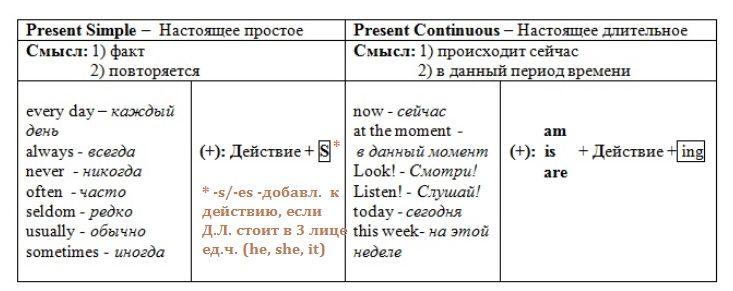
Упражнение 1. Как видно из таблицы в этих временах к глаголу-действию добавляются окончания: -S и -ING. Выполните упражнение и вспомните, какие изменения происходят с глаголом при добавлении этих окончаний.

Упражнение 2. Заполните таблицу, используя Present Simple или Present Continuous.
| Present Simple | Present Continuous | ||
| 1. | I / read | I read. | I am reading. |
| 2. | They / do | ||
| 3. | She / learn | ||
| 4. | He / speak | ||
| 5. | It /get | ||
| 6. | We / run | ||
| 7. | He / write | ||
| 8. | She / stay | ||
| 9. | They / carry | ||
| 10. | I / sleep | ||
Упражнение 3. Составьте предложения. Используйте Present Simple или Present Continuous.

Упражнение 4. Закончите предложения. Используйте Present Simple или Present Continuous.
- I …… (watch) TV every day.
- They ………… (watch) cartoons at the moment.
- She ………….. (like) watching news.
- Mark ……… (make noise) now.
- They………… (want) to go to the ballet school.
- Kate ………… (have) dancing lessons in a club.
- Our teacher ………… (make) us do homework.
- Our mother ………… (make) us clean your room every day.
- I ……. (want) to do boxing.
- My friend ………… (do) boxing now.
Упражнение 5.
Вспомните, как строятся вопросы и ответы в Present Simple и Present Continuous.
1. …………………… you usually wear jeans? — Yes, …………………………
2. ……………………. you wearing jeans now?- Yes, …………………………
3. ……………………. he wear the shoes in winter? — Yes, ………………………..
4. ……………………. he wearing a cap? — Yes, …………………………
5. ……………………. your sister wear T-shirts? — No, …………………………
6. ……………………. he doing his homework? — No, …………………………
7. ……………………. they watching TV? — No, …………………………
8…………………….. they watch TV in the morning? — No, …………………………
Упражнение 6.
Найдите ошибки в предложении.

2. Present Simple & Past Simple & Future Simple
Изучите таблицу простых времен в английском языке — Simple Tenses и ответьте на вопросы.

Вопросы:
- Какие вспомогательные глаголы используются в Present Simple, Past Simple и Future Simple?
- Какие формы глаголов используются в Present Simple, Past Simple и Future Simple (+)?
- Какие окончания добавляются к глаголам в Present Simple, Past Simple и Future Simple (+)?
- Сохраняются ли окончания в (-) и (?) предложениях? Какие правила про окончания вы помните?
Упражнение 7.
 * * *
* * *
Глагол BE – является неправильным и имеет в прошедшем времени формы was – был (а), were – были.
Упражнение 8.
Выполните, используя Present Simple, Past Simple и Future Simple.

Упражнение 9. Вспомните конструкцию местонахождения There is/ are и выполните упражнение, употребляя эту конструкцию в разных временах.
1. Our park is nice. …………………………………… a good playground there.
2. ………………………………. an old house near our school a year ago. Now……………………………….. a new playground there.
3. ……………………………….. some strawberries in the fridge. You can take them.
4. ………………………………. some bananas in the bag. Where are they now?
5. ………………………………. a lot of apples in autumn.
6. ………………………………. a lot of apples next autumn.
7. ………………………………. a stadium and three playgrounds near our house. We can play sports every day.
8. ………………………………. three playgrounds and a stadium near our house. We always play sports after school.
9. ………………………………. three apples and a banana in the fridge. You can give them to Sam.
10. ………………………………. a banana and three apples in the fridge. Can we make fruit salad?
Вы помните английские неправильные глаголы и их формы в прошедшем времени? Заполните таблицу.
| D1 (глагол в 1 форме) | D2 (глагол в 2 форме) | D3 (глагол в 3 форме) | |
| 1. | be | ||
| 2. | have | ||
| 3. | do | ||
| 4. | write | ||
| 5. | go | ||
| 6. | get | ||
| 7. | know | ||
| 8. | eat | ||
| 9. | drink | ||
| 10. | change | ||
Упражнение 10 . Перепишите следующий текст в прошедшем времени.
On Monday we have five lessons. The first lesson is Russian. At this lesson we write a dictation and do some exercises. Nick goes to the blackboard. He answers well and gets a «five». Pete does not get a «five» because he does not know his lesson. After the second lesson I go to the canteen. I eat a sandwich and drink a cup of tea. I do not drink milk. After school I do not go home at once. I go to the library and change the book. Then I go home!
Упражнение 11. Заполните таблицу. Используйте Present Simple, Past Simple и Future Simple.
| Present Simple | Past Simple | Future Simple | |
| 1. | I see. | I saw. | I will see. |
| 2. | He is happy. | ||
| 3. | I am ready. | ||
| 4. | It catches me. | ||
| 5. | They feel sad. | ||
| 6. | He falls down. | ||
| 7. | She tries. | ||
| 8. | It eats. | ||
| 9. | They stay. | ||
| 10. | We study. | ||
Упражнение 12. Переведите временные выражения-подсказки. Распределите их по изученным временам и нарисуйте схемы времен.
- sometimes_________________
- yesterday__________________
- soon______________________
- next day___________________
- in 2000____________________
- ago _______________________
- always_____________________
- often______________________
- in a day____________________
- usually________________
- last __________________
- tomorrow____________
Вспомните подсказки на пройденные времена.
Упражнение 13.
Раскройте скобки, поставив глаголы в нужном времени
1. Не often (bring) me flowers. 2. I (meet) Paul yesterday. 3. They (visit) us tomorrow. 4. What (you/do) next morning? 5. Mr Jones (buy) a car last month. 6. Mary (go) to school on foot every day. 7. It (be) hot soon. 8. The baby (not/sleep) well last week. 9. He never (drive) fast. 10. Lessy (live) in Paris in 1989.
Упражнение 14. Раскройте скобки и поставьте глаголы в нужном времени Present Simple, Past Simple, Future Simple.
Если вы не нашли подсказку в предложении , переведите его и подумайте в каком времени (настоящем, прошедшем или будущем) оно лучше звучит. Если сомневаетесь, используйте Present Simple Tense.
1. I (know) his family. 2. She (not/study) at this school. 3. … you (see) them yesterday? 4. He (not/have) a dog. 5. They (write) exercises at the lessons. 6. She (start) school last year. 7. She (not/go) to school. 8. There (be) an interesting film on TV soon. 9. I (not/go) to the country on my holidays next year. 10. Last week we (be) at the library.
Упражнение 15.
- We often_____________(play) basketball.
- I ____________(spend) next holidays very well (хорошо).
- Tomorrow he __________(spend) money and __________(buy) a new CD.
- They __________(go) abroad last month.
- We ___________(go) to football matches every year.
- She ___________(go) shopping yesterday evening.
- He _____________(miss) his parents last month.
- She ____________(make) cakes every day.
- They ___________(ask) a lot of questions next week.
- We ___________ (discuss) texts at the lesson tomorrow.
Упражнение 16. Закончите предложения. Используйте Present Simple, Past Simple и Future Simple.
- He _________ (not meet) his friend every week.
- She _________ (not meet) her parents yesterday.
- They ___________ (fight) last week.
- When _______the party________(begin) tomorrow?
- What _______you ______(get) for your last birthday?
- He often ____________(to forget) his textbook at home.
- The teacher _______(to hear) the noise at the last desk.
- They ___________(not to win) the prize yesterday.
- I _____________(not to feed) my cat every day.
- What ______ you _______(do) tomorrow?
* * *
3. Present Simple & Past Simple & Future Simple & Present Continuous
Упражнение 17.
- (Granny / teach me English / now)
- (Granny / teach me English / when I was seven)
- (They / speak English / at the moment)
- (She / speak English well / soon)
- (He / use the computer / now)
- (He / use the computer / every day)
- (We / learn the rules / at the moment)
- (We / learn new rules / tomorrow)
- (I / do lessons / now)
- (I / do lessons / two days ago)
Упражнение 18. Закончите предложения. Используйте Present Simple, Past Simple, Future Simple & Present Continuous.
- He ……………………… (wash) his car last Saturday.
- He ………………………. (wash) his car at the moment.
- He often………………… (wash) his car.
- We ……………………….. (buy) the chair a month ago.
- They ………………….. (make) friends when they………………. (be) little children.
- She……………………….. (do) a grammar exercise now.
- She is a pupil. She often …………… (do) grammar exercises.
- She……………………………(do) the exercise an hour ago.
- His grandfather …………….. (work) at the circus when he ……………………. (be) young.
- Don’t ask him any questions now. He …………….., (work).
Вы выполнили 17 упражнений на времена в английском языке Present Simple, Past Simple, Future Simple и Present Continuous. Поздравляем! Теперь вы знаете основные времена в английском языке. Переходите к другим разделам. Продолжайте изучать английский язык на уровне (beginer- intermediate) на сайте .

